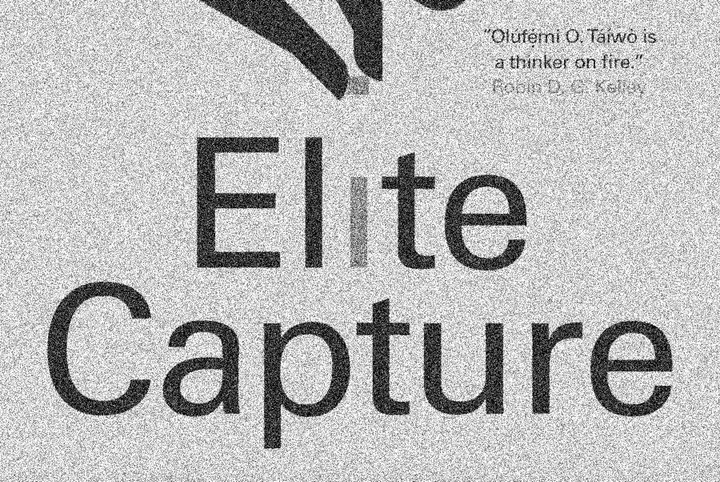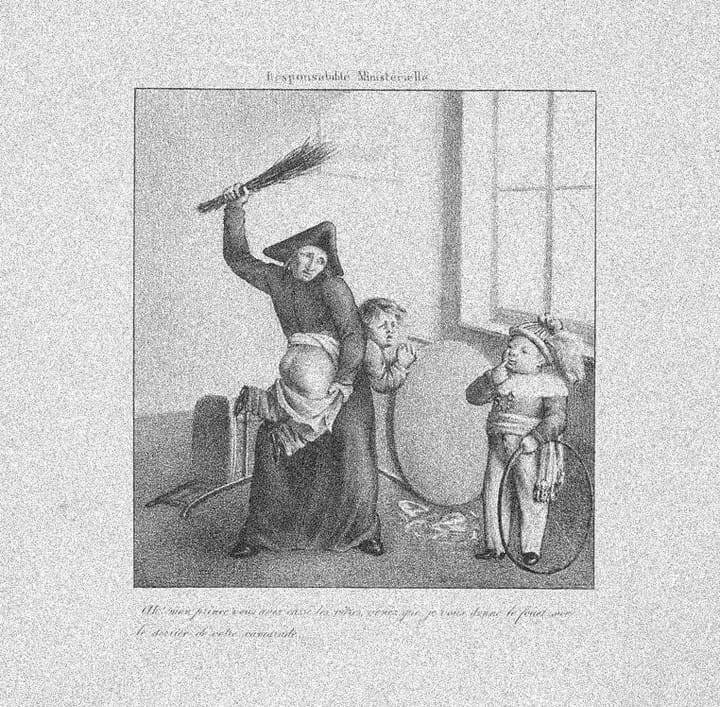Where Do Identity Politics Come From?
Identity politics is an expression of mass political demobilization, but it is also undergirded by the power of the nonprofit sector.

Despite all of our deepest wishes, the endless debates on the value of identity politics, and whether or not it undermines or gives expression to class politics, are not going anywhere. The identitarians are going to trot out ever more inflammatory demands. The academics are going to cheer them on. The right-wingers will parade both groups as somehow both hopelessly confused and dangerously threatening, prompting measured liberal responses. We’re stuck with this stuff as long as we’re circling the drain.
Endnotes’ “Onward Barbarians” is an attempt to grapple with the continuing grip of identity on our politics, which the left-wing writing collective sees as a rational expression of mass demobilization. Absent real working-class agency, this is the categorial order of our politics. So far, so good. But they go on to extrapolate from this a normative position: for them, we cannot outright reject identity politics because it is the only medium of expression for discontent, given the parameters of the current political order. Indeed, confused as it might be, identity politics is still worth taking seriously: as they say, “class belonging is today calibrated by a multitude of variables such as age, gender, geography, race, or religion that act as channels, as well as real limits, for social struggles, and make identity politics a real expression of class struggle.”
Against critics of identity politics like Michael Lind, they hold up the ambivalence inherent in identity politics: the contemporary “non-movement expresses the antagonistic dimension and social basis of ‘identity politics’ as such, whether it comes from the right or the left. Rather than call out the litany of identitarian cul de sacs, the point is to show how an increasingly disruptive status quo is necessarily shot through with problems of identity, and that any discussion of emancipation has to begin here.” A nice dialectical move, but it comes at the cost of a materialist understanding of the present order.
Identity is not simply a weed that grows in an untended garden; there is another side to the story. As Philip Cunliffe stresses in a recent episode of Aufhebunga Bunga, “the problem is that they [Endnotes] constantly see things in sociological rather than political terms. [To] say that the proletariat no longer has any task because the abolition of industrial jobs in Western countries has transformed working-class politics is to substitute an industrial and sociological transformation for a political defeat. It was a political defeat, not a restructuring of the labor market.” Similarly, the checks on political agency today do not all simply issue from the disintermediated void. They are also actively political insofar as they are secured through the policing of a simulated civil society made up of NGOs. The failure of Endnotes’ philosophy of identity is to mistake the machinations of this simulated civil society for authentic insurrectionary activity and incipient proletarian consciousness.
In the United States, beginning in the 1960s, foundation-funded publications, institutes, and university programs pushed an ideological agenda centered around diversity and multiculturalism as antidotes to the forms of discrimination that were, in their view, responsible for inequality and poverty. This was a concerted effort of the domestic Cold War, which aimed to undercut Communist influence through the propagation of nationalism, religion, and particularism.
In one way, this identitarian agenda bore a real program: the extension of the civil rights movement to other oppressed and marginalized groups, including “women, the physically and mentally disabled, the aged, and gays and lesbians. Litigation and political action by these groups, organized as social movements through Washington-based nonprofits, transformed American politics in the second half of the twentieth century.” In other ways it produced what Karen Ferugson has described as the “thin gruel of multiculturalism to foster racial self-esteem in a model of affective education… which became a cheap substitute for policy and programs attacking the material and structural sources of… underachievement.” In Top Down, Ferguson describes the “affective curriculum” of “identity education” propagated by the Ford Foundation, which aimed at “increasing black communities’ and students’ ‘sense of self-worth’ to combat their ‘feelings of powerlessness or alienation’ in order to ‘develop strength, self-confidence, and a feeling of control over their destiny.’… Notably absent from these therapeutic prescriptions were any promises of material power.”
In both cases, nonprofits have been instrumental in translating protest against inequality and a struggle over material resources into the framework of “rights.” Disadvantaged groups in society suffer, in their logic, from a lack not of resources but of opportunities, of representation, of strictly formal guarantees to social advancement. Their uniqueness, in this identitarian view, lies not in their structural position in society but rather the softness of their voices in a pluralist cacophony.
To give excluded and unorganized groups a microphone, the third sector draws on a longstanding dynamic of racial brokerage, where selected representatives of “the community” are groomed to speak for and in place of particular constituencies. Foundation-funded community organizations cultivate an “indigenous leadership” comprised of “black and brown ‘public entrepreneurs.’” As Ferguson explains, these nonprofits are favorite objects of foundation funding because they both “promise to solve ghetto problems without any fundamental social, economic, or political disruption” and also allow a “careful selection, development, and monitoring of handpicked, ‘grassroots’ leaders.”
Writing of nonprofits’ role in undermining public housing in New Orleans, John Arena helpfully summarizes the effect of this nonprofit “leadership development”:
Nonprofits help cultivate what Gramsci defines as the ruling class’s “intellectuals,” their “deputies”—operatives who exercise hegemonic power within the working class. Central to the recruiting and co-optive powers of nonprofits and their foundation sponsors is the material rewards they can provide intellectuals—the “jobs and benefits for radicals willing to become pragmatic.” These perks, along with the legitimation that comes with being associated with “progressive,” “humanitarian,” and/or “social change” organizations, can be useful in both peeling away working-class, grassroots, organic intellectuals or preventing others from even dabbling in radical politics.
As Marx said, “the more a ruling class is able to assimilate the most prominent men of the dominated classes, the more stable and dangerous is its rule.”
Not so long ago, NGOs used to think about their aims explicitly in terms of “segregated betterment,” undoubtedly a goal that today they would repudiate. In practice, however, by reifying identity categories into the basis for their particularist politics and cultivating an elite class of “community” representatives, nonprofits unwittingly continue in the tradition of what Ferguson calls “developmental separatism,” which assumes a cultural and behavioral separateness of African-Americans that must be dealt with independent of larger social and political concerns.
The political effects of the dominance of the third sector have, of course, been disastrous: for Arena, the “promotion of identity politics-informed organizing focused on difference presents a major obstacle, or trench, to constructing a broad left that recognizes common class interests—a force that would have the social power to effectively combat racial, gender, sexual, and other forms of oppression through a mass challenge to the ruling class’s neoliberal capitalist agenda.”
We know the negative story of the last fifty years: unions and mass membership organizations were gutted, resulting in what Peter Mair called “the void”—a hollowed out political order where elites are relatively free from pressure from below. What has been missing is a positive account that demonstrates how top-down nonprofits have come to fill in that intermediary space, as Benjamin Y. Fong and Melissa Naschek provide in a recent issue of Catalyst. Without coming to terms with this material basis of identity politics, we’re left with Endnotes in the thin air of dialectical speculation, twisting ourselves into knots to find a way to affirm the present.
■
Jan Calloway writes in from Cincinnati.



